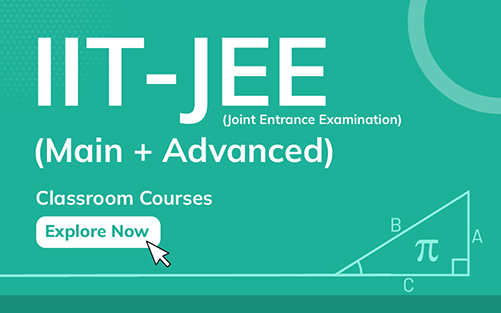6 Common myths about IIT-JEE preparation and how to overcome them

IIT-JEE is a prestigious entrance examination for those who aspire to become engineers. It is one of the most difficult examinations for science stream students. This is a two-staged examination, viz., JEE Main and JEE Advanced. JEE Main is the screening test, and those who clear JEE Main are eligible for JEE Advanced. The JEE Main scorecard is used for admission into various top government colleges such as NITs, NSUT, DTU, etc., whereas the JEE Advanced scorecard is used for admission into IITs, IISc, etc. Every year a lot of aspirants appear in this prestigious examination. But a lot of these aspirants have a lot of myths and misconceptions. Questions like, Is IIT-JEE tough? Or can an average student clear IIT-JEE? Or is IIT-JEE too tough? Questions like this can shatter the confidence of aspirants. In this blog, we will unearth 6 common myths about IIT-JEE preparation and how to overcome them.
Top 6 Common Myths about IIT-JEE Preparation
An average student cannot clear IIT-JEE
This is the biggest misconception among students. No doubt IIT-JEE is one of the most difficult exams in the country, but it doesn’t mean that only top brilliant students can clear IIT-JEE; in fact, not all of the top IIT-JEE rankers are able to solve all the questions in the first attempt. But one thing that is common among all the top rankers is that they all are hard workers; they work a lot to clear their concepts. Therefore, to clear IIT-JEE, it is not important to be the most intelligent, but what is required is to be the hard worker, focused, and completely committed to goals.
Dedicated study during last few months in enough
This is not true; dedicated study is necessary, but studying only during the last few months is not sufficient to clear IIT-JEE. Aspirants must study regularly to strengthen their concepts no matter how intelligent they are. Starting the preparation early gives ample time for revision and practice. Practicing and revising in the last few weeks or last few months is a big gamble that no serious aspirant wants to play.
More books means better preparation and hence better marks
There is an old saying: books and friends should be few but the best. This is applicable at every point of life as well as in competition. If you keep yourself surrounded by a lot of books, you will end up getting confused and just wasting precious money and time on books. Therefore, instead of reading multiple books one time, read a standard book multiple times; this would build up your confidence as well as your concept. Always follow NCERT for concept building and any standard book for practicing or studying any difficult topic. If you have enrolled in any coaching, follow their module and notes religiously.
If you score well in JEE Main, you would automatically score good marks in JEE Advanced.
This is absolutely wrong; JEE Main and JEE Advanced are two different exams with different exam patterns and difficulty levels. Scoring good marks (even full marks) can’t guarantee getting a rank under top 10 or top 100. Therefore, one should not rely on the marks of JEE Main. A good score in JEE Main is a guarantor of appearing in JEE Advanced but not of the score of JEE Advanced. Yes, good marks in JEE Main are an indication that you have a good grasp of the basic concepts, but for JEE Advanced you have to study hard.
You should know “everything” to crack JEE Advanced
Yes, JEE Advanced is one of the most difficult exams in the country, and only a few brilliant students qualify for it with a good rank, but it doesn’t mean that you have to be a living encyclopaedia to crack it. There is a fixed syllabus, and aspirants should study according to the syllabus. Doing research and going too deep into any subject/topic is not necessary.
It is fine is you are weak in any subject
It is not good to leave any subject unprepared or weak, yet if there is any subject that is not completely prepared, then you should prepare it to an extent so that at least you can solve some easy or basic questions from it.
These are some common myths related to IIT-JEE preparation; every year, lots of students get stuck in these myths, which hamper their preparation to a significant extent. Aspirants are advised to avoid such myths and keep focusing on their preparation and studies. Also, there are other myths apart from these, like preparing for the board exam and IIT-JEE is the same thing, etc. These myths can create hindrances in IIT-JEE preparation; in case of doubt or confusion, aspirants can discuss it with their mentor or teacher.
FAQs:
Is 7 hours of sleep enough for a JEE aspirant?
Answer: Yes, 7 hours of sleep is enough for JEE aspirant.
Can I get 99 percentile in JEE Mains in 6 months?
Answer: The score depends upon your preparation and conceptual clarity as well as practice, if you have prepared well then it is possible to get 99 percentile in JEE Main in 6 months.
How many seats are there in IIT?
Answer: Total there are more than 17,000 seats in IIT.
What is the old name of JEE?
Answer: Earlier, JEE Main was called as All India Engineering Entrance Examination (AIEEE), whereas JEE Advanced was known as IIT-JEE.
















